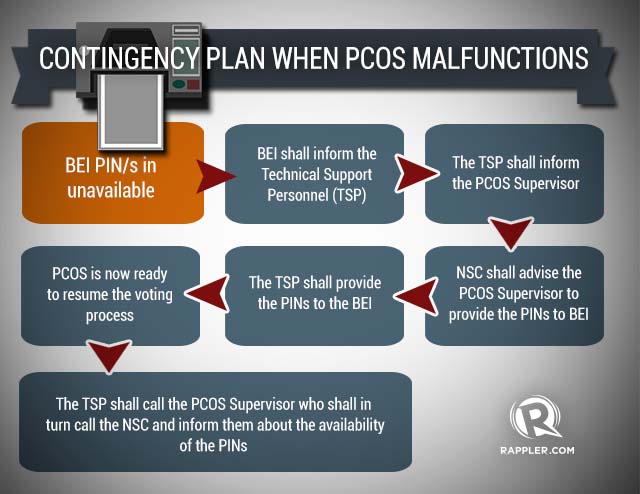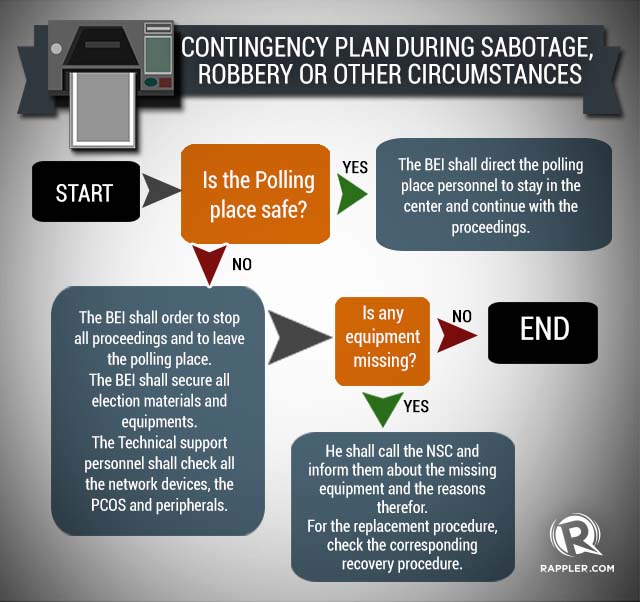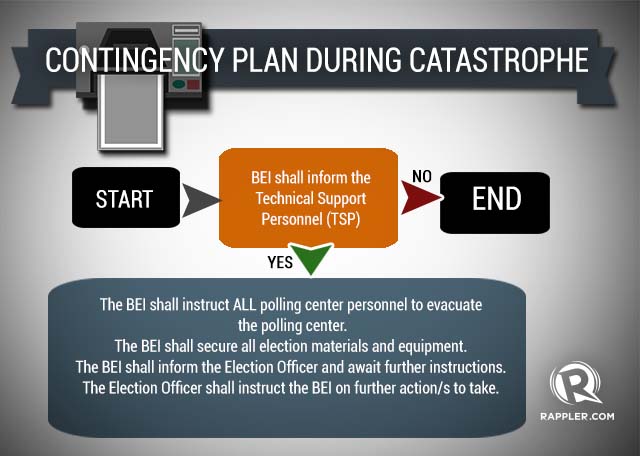SUMMARY
This is AI generated summarization, which may have errors. For context, always refer to the full article.
.jpg)
MANILA, Philippines – Various election watchdogs have already expressed concern about the reliability of the Precinct Count Optical Scan (PCOS) machines in accurately reading and transmitting votes in this year’s elections.
Monitored technical problems during the final testing and sealing (FTS) of the poll machines ranged from overheating, paper jam, and defective units.
Beyond the technical issues, election watchdogs also cited procedural problems, mostly involving board of elections inspectors (BEIs). Some voters also took time finding their names and respective precincts, while other BEIs were still not fully knowledgeable about proper voting procedures.
Seeking to address these problems, Legal Network for Truthful Elections (LENTE) released the following charts to guide voters, media and all BEIs — anticipating that problems relating to PCOS machines would arise.
When PCOS malfunctions

At the start of the voting, in cases when pins distributed to the BEIs did not work or were unavailable, BEIs were supposed to inform the Comelec-appointed technical support personnel. Each cluster precinct was assigned at least one TSP to handle technical-related problems.
The TSP is tasked to inform the PCOS supervisor present in the polling precinct about the problem. After this step, the National Support Center (NSC) is supposed to advise the PCOS supervisor to provide the needed PINs to the BEI. The same PCOS supervisor is supposed to also inform the NSC that the problem was resolved. After following instructions, the PCOS machine should be ready to work.
Sabotage, robbery

In cases where there is harassment, robbery, or any other related incidents in polling precincts, the BEI is allowed to call the voting to a halt. Poll officers should then be advised to leave.
It is the BEI’s responsibility to secure all election materials, while the TSP is responsible for securing all network devices, including PCOS and other peripherals.
Catastrophe

In cases of a catastrophe, election officers are supposed to give the final instructions to BEIs.
Their priority task during catastrophes is to make sure that all election personnel evacuate the precincts as soon as possible. The BEIs are also supposed to be responsible for securing all election materials and paraphernalia. – Rappler.com
Add a comment
How does this make you feel?
There are no comments yet. Add your comment to start the conversation.